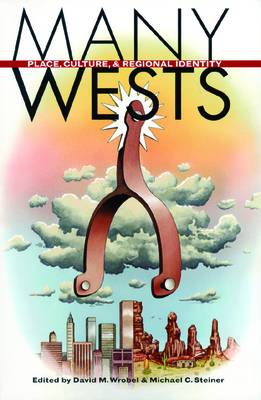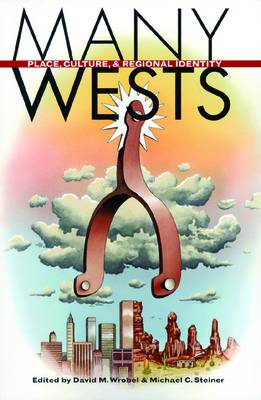
- Afhalen na 1 uur in een winkel met voorraad
- Gratis thuislevering in België vanaf € 30
- Ruim aanbod met 7 miljoen producten
- Afhalen na 1 uur in een winkel met voorraad
- Gratis thuislevering in België vanaf € 30
- Ruim aanbod met 7 miljoen producten
Zoeken
€ 41,45
+ 82 punten
Omschrijving
What does it mean to live in the West today? Do people tend to identify with states, with regions, or with the larger West? This book examines the development of regional identity in the American West, demonstrating that it is a regionally diverse entity made up of many different wests--Great Plains, Southwest, Rocky Mountains, and more--in which American regionalism finds its fullest expression. These fourteen original essays tell how a sense of place emerged among residents of various regions and how a sense of those places was developed by people outside of them. Wrobel and Steiner first offer a compelling overview of the West's regional nature; then thirteen other rising or renowned scholars-from history, American Studies, geography, and literature-tell how regional consciousness formed among inhabitants of particular regions. All of the essays address the larger issue of the centrality of place in determining social and cultural forms and individual and collective identities. Some focus on race and culture as the primary influences on regional consciousness while others emphasize environmental and economic factors or the influence of literature. Some even examine western regionalism in areas that lie beyond the West as it has traditionally been conceived. Each of the contributors believes that where a people live helps determine what they are, and they write not only about the many wests within the larger West, but also about the constant state of flux in which regionalism exists. Many books speak of the West as a place, but few others deal with the West's different places. Many Wests presents a vision of the West that reflects both the common heritage and unique character of each major subregion, building on the revisionist impulse of the last decade to help redirect New Western History toward an appreciation of regional diversity and integrate scholarship in the regional subfields. It is a book for everyone who lives in, studies, or loves the West, for it confirms that it is home to very different peoples, economies, histories--and regions.
Specificaties
Betrokkenen
- Auteur(s):
- Uitgeverij:
Inhoud
- Aantal bladzijden:
- 398
- Taal:
- Engels
Eigenschappen
- Productcode (EAN):
- 9780700608621
- Verschijningsdatum:
- 30/10/1997
- Uitvoering:
- Paperback
- Formaat:
- Trade paperback (VS)
- Afmetingen:
- 154 mm x 233 mm
- Gewicht:
- 639 g

Alleen bij Standaard Boekhandel
+ 82 punten op je klantenkaart van Standaard Boekhandel
Beoordelingen
We publiceren alleen reviews die voldoen aan de voorwaarden voor reviews. Bekijk onze voorwaarden voor reviews.








